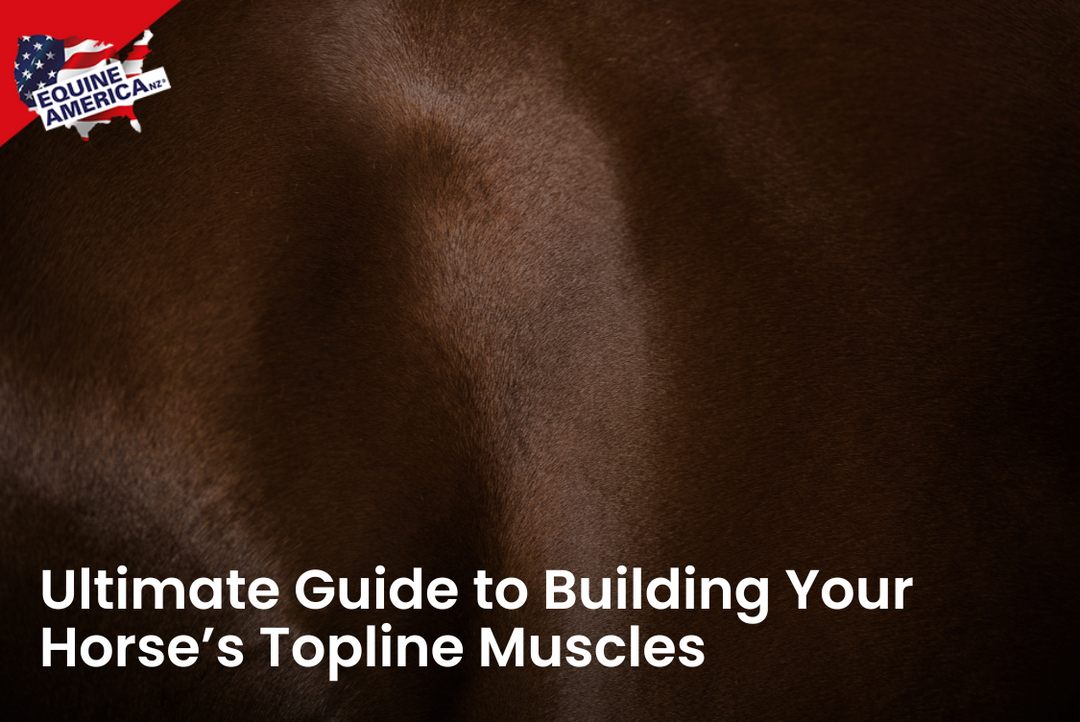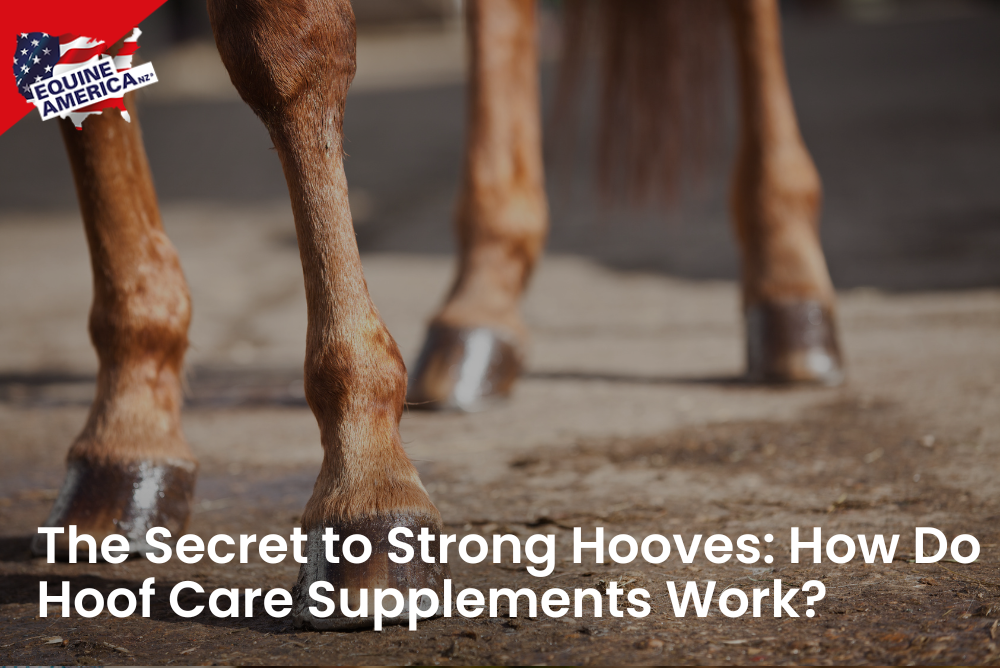As a horse owner, one of the questions you may often find yourself pondering is whether or not to supplement your horse's diet. With so many different products available on the market, it can be overwhelming to navigate through the options and determine what's best for your equine companion. While a well-balanced diet should ideally provide all the necessary nutrients, there are certain situations where horse supplements can be beneficial.
In this guide, we will explore the factors to consider when deciding whether or not to supplement your horse, helping you make an informed decision for the overall health and well-being of your four-legged friend.
Proper nutrition is essential for maintaining the health and well-being of horses. Understanding the nutritional needs of your equine companion is the first step towards ensuring they receive a balanced diet. Horses require a combination of macronutrients, micronutrients, and water to thrive.
Assessing your horse's current diet is an essential step in determining if they require the necessary supplements. Evaluating both forage and concentrate components can help identify any nutritional gaps or imbalances.
Supplementation is a common practice in the horse industry, aimed at providing additional nutrients to support specific needs or address deficiencies. While supplements can offer several benefits, it's essential to understand the potential risks involved.
Horse supplements can provide a range of benefits, such as improving joint health, promoting digestive function, enhancing coat and hoof condition, supporting immune function, and aiding in overall performance. They can help fill nutritional gaps and support horses with specific requirements or conditions.
It's crucial to consider the potential risks associated with supplement use. Over-supplementation can lead to imbalances, toxicity, or adverse effects. Poor-quality supplements may contain contaminants or insufficient levels of active ingredients. It's important to consult with a veterinarian or equine nutritionist to determine the appropriate supplements and ensure they are sourced from reputable manufacturers.

The market offers a wide array of horse supplements, each designed to target specific areas of health and performance. Understanding the different types can help you choose the most suitable options for your horse's needs.
When it comes to deciding whether to supplement your horse's diet, it's important to make an informed decision based on your horse's individual needs and circumstances. Here are some key factors to consider:
Making the decision to supplement your horse's diet is a choice that should be approached with careful consideration. By understanding your horse's nutritional needs, evaluating their diet, and seeking professional advice, you can make an informed decision about whether supplementation is necessary and beneficial for your horse's overall health and performance.
If you're looking for high-quality supplements for your equine companion, consider exploring the range of products offered by us here at Equine America NZ. Our supplements are formulated with the well-being of horses in mind, backed by extensive research, and manufactured to the highest standards. Visit our website today to discover how Equine America NZ can support your horse's health and performance.
In this guide, we will explore the factors to consider when deciding whether or not to supplement your horse, helping you make an informed decision for the overall health and well-being of your four-legged friend.
Understanding Equine Nutritional Needs
Proper nutrition is essential for maintaining the health and well-being of horses. Understanding the nutritional needs of your equine companion is the first step towards ensuring they receive a balanced diet. Horses require a combination of macronutrients, micronutrients, and water to thrive.
- Macronutrients: Horses need a sufficient amount of carbohydrates, proteins, and fats in their diet. Carbohydrates provide energy, while proteins are essential for muscle development and repair. Fats are a concentrated source of energy and aid in maintaining a healthy body condition.
- Micronutrients: Micronutrients, such as vitamins and minerals, are required in smaller quantities but play a crucial role in various bodily functions. Vitamins support overall health, metabolism, and immune function, while minerals contribute to bone strength, muscle function, and other physiological processes.
- Water: Adequate hydration is vital for horses to maintain proper digestion, regulate body temperature, and support overall health. Horses should have access to clean, fresh water at all times, especially during exercise or in hot weather.
Evaluating Your Horse's Diet
Assessing your horse's current diet is an essential step in determining if they require the necessary supplements. Evaluating both forage and concentrate components can help identify any nutritional gaps or imbalances.
- Forage Evaluation: Forage, such as hay or pasture, should make up a significant portion of a horse's diet. Assess the quality of the forage by considering factors like colour, smell, leafiness, and absence of mould or dust. High-quality forage provides essential fibre, vitamins, and minerals.
- Concentrate Evaluation: Concentrates, including grains or pelleted feeds, may be added to the diet to meet specific nutritional requirements. Evaluate the ingredient list, nutritional content, and feeding recommendations of the concentrate to ensure it aligns with your horse's needs.
Benefits And Risks Of Supplementation
Supplementation is a common practice in the horse industry, aimed at providing additional nutrients to support specific needs or address deficiencies. While supplements can offer several benefits, it's essential to understand the potential risks involved.
Benefits of Supplementation
Horse supplements can provide a range of benefits, such as improving joint health, promoting digestive function, enhancing coat and hoof condition, supporting immune function, and aiding in overall performance. They can help fill nutritional gaps and support horses with specific requirements or conditions.
Risks of Supplementation
It's crucial to consider the potential risks associated with supplement use. Over-supplementation can lead to imbalances, toxicity, or adverse effects. Poor-quality supplements may contain contaminants or insufficient levels of active ingredients. It's important to consult with a veterinarian or equine nutritionist to determine the appropriate supplements and ensure they are sourced from reputable manufacturers.

Types of Horse Supplements
The market offers a wide array of horse supplements, each designed to target specific areas of health and performance. Understanding the different types can help you choose the most suitable options for your horse's needs.
- Joint Supplements: These supplements typically contain ingredients like glucosamine, chondroitin, and hyaluronic acid to support joint health, reduce inflammation, and improve mobility.
- Digestive Supplements: Digestive supplements aid in maintaining a healthy digestive system by supporting gut flora, promoting efficient nutrient absorption, and reducing the risk of digestive disorders.
- Coat and Hoof Supplements: These supplements aim to enhance the condition of the horse's coat and promote strong, healthy hooves. They often contain ingredients like biotin, omega-3 fatty acids, and zinc.
- Immune Support Supplements: Immune support supplements contain ingredients such as vitamins, antioxidants, and herbs to strengthen the immune system and help horses resist illness and disease.
Making An Informed Decision
When it comes to deciding whether to supplement your horse's diet, it's important to make an informed decision based on your horse's individual needs and circumstances. Here are some key factors to consider:
- Evaluate Your Horse's Diet: Start by assessing your horse's current diet and nutritional requirements. Consult with a veterinarian or equine nutritionist to determine if there are any deficiencies or areas that could benefit from supplementation.
- Consider Specific Needs: Consider your horse's age, workload, health condition, and any specific requirements. Certain horses, such as those in intense training or senior horses, may benefit from targeted supplements to support their unique needs.
- Quality and Safety: Ensure that any supplements you choose are of high quality, sourced from reputable manufacturers, and backed by scientific research. Look for supplements with clear ingredient lists, proper dosage instructions, and quality assurance certifications.
- Seek Professional Advice: Consult with professionals in the field of equine nutrition, such as veterinarians or equine nutritionists, to get personalised recommendations based on your horse's individual requirements.
Final Thoughts
Making the decision to supplement your horse's diet is a choice that should be approached with careful consideration. By understanding your horse's nutritional needs, evaluating their diet, and seeking professional advice, you can make an informed decision about whether supplementation is necessary and beneficial for your horse's overall health and performance.
If you're looking for high-quality supplements for your equine companion, consider exploring the range of products offered by us here at Equine America NZ. Our supplements are formulated with the well-being of horses in mind, backed by extensive research, and manufactured to the highest standards. Visit our website today to discover how Equine America NZ can support your horse's health and performance.
Please give us a call at Equine America NZ today at 0800 440 888 to learn more or leave an enquiry.




